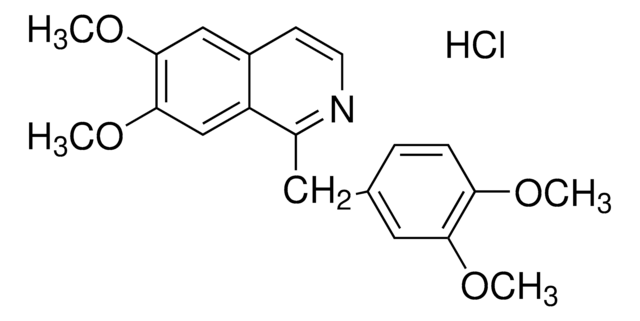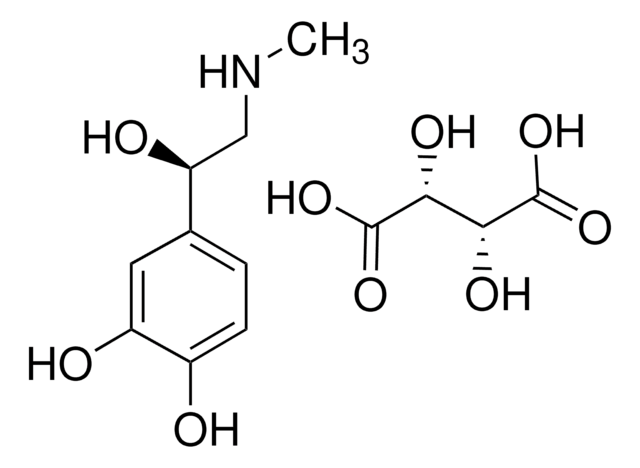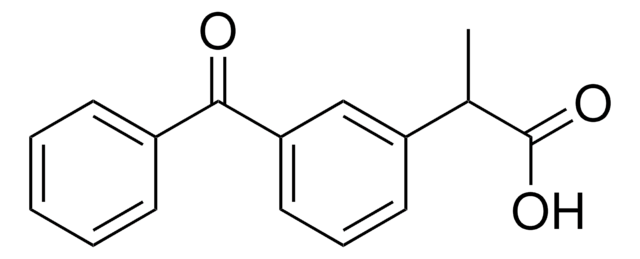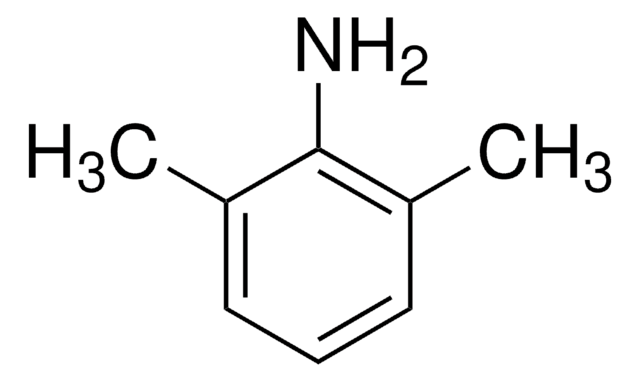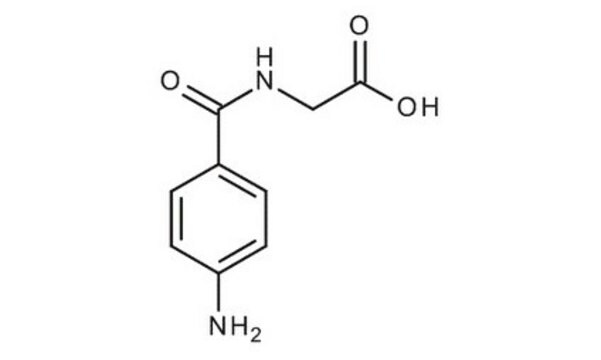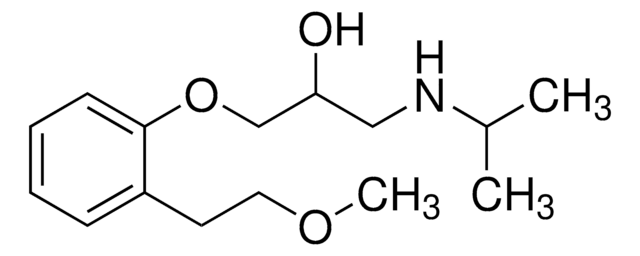1650006
USP
Tetracaine hydrochloride
United States Pharmacopeia (USP) Reference Standard
Synonym(s):
4-(Butylamino)benzoic acid 2-(dimethylamino)ethyl ester, Amethocaine hydrochloride
About This Item
Recommended Products
grade
pharmaceutical primary standard
API family
tetracaine
manufacturer/tradename
USP
application(s)
pharmaceutical (small molecule)
format
neat
SMILES string
Cl.CCCCNc1ccc(cc1)C(=O)OCCN(C)C
InChI
1S/C15H24N2O2.ClH/c1-4-5-10-16-14-8-6-13(7-9-14)15(18)19-12-11-17(2)3;/h6-9,16H,4-5,10-12H2,1-3H3;1H
InChI key
PPWHTZKZQNXVAE-UHFFFAOYSA-N
Gene Information
human ... SCN10A(6336) , SCN11A(11280) , SCN1A(6323) , SCN2A(6326) , SCN3A(6328) , SCN4A(6329) , SCN5A(6331) , SCN7A(6332) , SCN8A(6334) , SCN9A(6335)
Looking for similar products? Visit Product Comparison Guide
General description
Application
- Benzocaine, Butamben, and Tetracaine Hydrochloride Gel
- Benzocaine, Butamben, and Tetracaine Hydrochloride Ointment
- Benzocaine, Butamben, and Tetracaine Hydrochloride Topical Aerosol®
- Benzocaine, Butamben, and Tetracaine Hydrochloride Topical Solution
- Lidocaine, Racepinephrine, and Tetracaine Hydrochlorides Compounded Topical Gel
- Neomycin Sulfate, Isoflupredone Acetate, and Tetracaine Hydrochloride Ointment
- Neomycin Sulfate, Isoflupredone Acetate, and Tetracaine Hydrochloride Topical Powder
Biochem/physiol Actions
Analysis Note
Other Notes
Legal Information
related product
Signal Word
Danger
Hazard Statements
Precautionary Statements
Hazard Classifications
Acute Tox. 3 Oral - Eye Irrit. 2 - STOT SE 3
Target Organs
Central nervous system
Storage Class Code
6.1C - Combustible acute toxic Cat.3 / toxic compounds or compounds which causing chronic effects
WGK
WGK 3
Flash Point(F)
Not applicable
Flash Point(C)
Not applicable
Certificates of Analysis (COA)
Search for Certificates of Analysis (COA) by entering the products Lot/Batch Number. Lot and Batch Numbers can be found on a product’s label following the words ‘Lot’ or ‘Batch’.
Already Own This Product?
Find documentation for the products that you have recently purchased in the Document Library.
Our team of scientists has experience in all areas of research including Life Science, Material Science, Chemical Synthesis, Chromatography, Analytical and many others.
Contact Technical Service